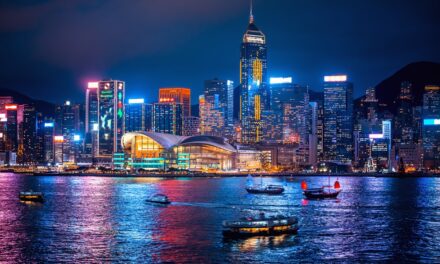
Slowdown in telecoms gets integrators talking
Integrators are notoriously reluctant to reveal who their customers are, or to talk about slowing business. But the well-publicised worldwide downturn in the telecoms market, one of Finland’s biggest exports, has brought them out of the closet.
Henrik Lindahi, DHL Finland’s commercial manager, says: “There is a decrease in demand in the hi-tech market. Shipments of heavy machinery that support the telecoms industry have more or less disappeared.”
DHL offers a next-day service throughout Europe, a same-day to Germany, the UK and Nordic countries and operates two nightly flights out of Helsinki to Brussels and Cologne. Connections to the other key Finnish markets are through Copenhagen, with a nightly flight stopping at Tampere, in central Finland, and Oulu, the northern city at the heart of Finland’s telecoms industry
Oulu is home to many hi-tech companies, including the country’s biggest, Nokia. Lindahl says Oulu’s hi-tech industry continues to provide regular shipments. Things are “slower”, but ad hoc air shipments are on the
increase. “We’ve noticed there is a base of shipments that would usually go by road but are switching to air express.”
Ar Niemelä, sales and marketing director for TNT, confirms this trend. “Companies are decreasing their stocks, so they need faster transportation to replace inventory No-one wants to store mobile phones.”
TNT claims not to have
been affected by a decrease in hi-tech shipments, although Niemela says that the increase in related shipments is “not quite as aggressive” as in previous years.
“The business segments are the same but their market share has changed. We carry a lot of electronics, spare parts and samples for the paper industry. The healthcare sector is a growing business for us, particularly blood samples,” he adds.
TNT flies nightly from Helsinki into its Liege hub. It also operates from Turku, the base for its European road service. Trucks are loaded onto ferries at the port of Naantali, 15km from Thrku in south-west Finland, destined for Stockholm. From here, they drive to sub-hubs in Arnhem or Hanover.
TNT covers 27 countries from Finland by road, and recently added Turkey. It will shortly use this network to provide connections further
afield. The new Economic Express product will offer Finnish shippers carriage to 22 destinations outside Europe, including the US and the Far East. Shipments travel to the Europe hub by road before being fed into TNT’s air network.
The integrator operates daily services to various Russian destinations, but Niemelä says it is not a huge market. However, he believes a lot of express traffic is being generated in eastern Europe. “Last year, we began a daily service between Helsinki and Tallinn because its manufacturing base. Many electronics businesses have outsourced their manufacture to eastern and central Europe,” says Niemelä.
DHL and TNT each handle im parcels and documents through Finland annually, and while they serve the same market, their approach is very different.
DHL concentrates on international business. It provides door-to-door transport to major Finnish business centres, but lacks the extensive domestic network offered by TNT.
Finland’s remoteness and severe winter weather has justified TNT’s investment in a ground fleet, says Niemelä.
The company covers 1,200 domestic addresses daily through a road fleet serving the major markets. Niemelä claims a 99.8% on-time delivery record, but the fleet will have to work hard to maintain this when same-day and next-day domestic services are introduced in the autumn.
Finland’s industrial base is scattered throughout the country which makes it a difficult market to serve. DHL says the biggest challenge is being at the end of the network.
“Aircraft arrive at 7.30am and 9am, making it impossible for us to offer 9am delivery in Finland. We have to offer next-day before midday. The time window and geography are challenging,” says Lindahl.
DHL has improved its outbound service after moving into a new Fmk30m (€5m) facility in June. “After some re-organisation, aircraft stop right outside the terminal, making handling faster. As a result, we have been able to extend our customers’ cut-off time by over one hour to 8pm,” he adds.












